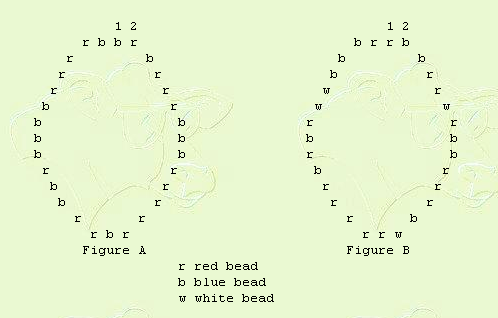137 人解决,210 人已尝试。
190 份提交通过,共有 654 份提交。
3.7 EMB 奖励。
单点时限: 2.0 sec
内存限制: 256 MB
You have a necklace of N red, white, or blue beads (3<=N<=350) some of which are red, others blue, and others white, arranged at random. Here are two examples for n=29:

The beads considered first and second in the text that follows have been marked in the picture.
The configuration in Figure A may be represented as a string of b’s and r’s, where b represents a blue bead and r represents a red one, as follows: brbrrrbbbrrrrrbrrbbrbbbbrrrrb .
Suppose you are to break the necklace at some point, lay it out straight, and then collect beads of the same color from one end until you reach a bead of a different color, and do the same for the other end (which might not be of the same color as the beads collected before this).
Determine the point where the necklace should be broken so that the most number of beads can be collected.
Example
For example, for the necklace in Figure A, 8 beads can be collected, with the breaking point either between bead 9 and bead 10 or else between bead 24 and bead 25.
In some necklaces, white beads had been included as shown in Figure B above. When collecting beads, a white bead that is encountered may be treated as either red or blue and then painted with the desired color. The string that represents this configuration will include the three symbols r, b and w.
Write a program to determine the largest number of beads that can be collected from a supplied necklace.
Line 1: N, the number of beads
Line 2: a string of N characters, each of which is r, b, or w
A single line containing the maximum of number of beads that can be collected from the supplied necklace.
29 wwwbbrwrbrbrrbrbrwrwwrbwrwrrb
11 OUTPUT EXPLANATION Consider two copies of the beads (kind of like being able to runaround the ends). The string of 11 is marked. wwwbbrwrbrbrrbrbrwrwwrbwrwrrb wwwbbrwrbrbrrbrbrwrwwrbwrwrrb ****** *****
137 人解决,210 人已尝试。
190 份提交通过,共有 654 份提交。
3.7 EMB 奖励。